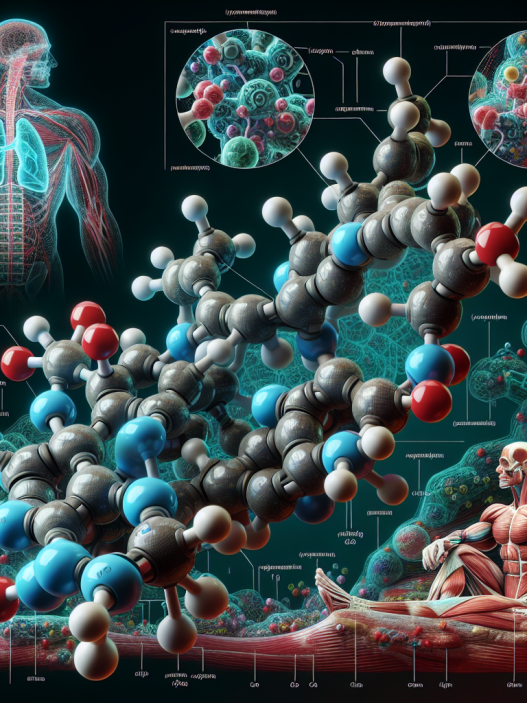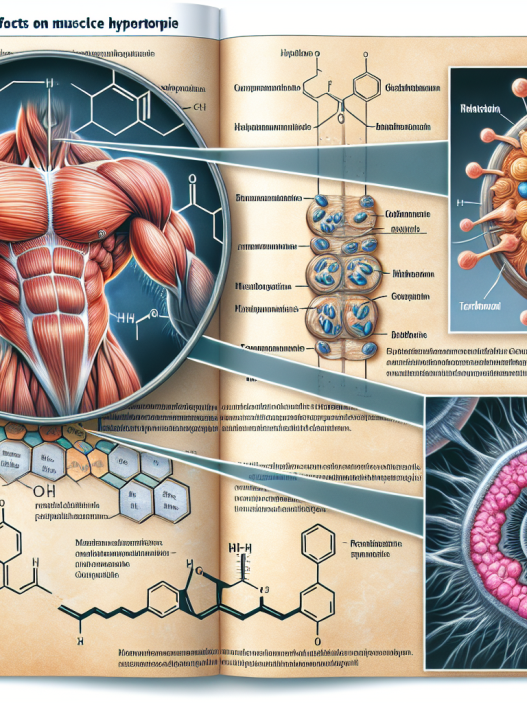-
Table of Contents
Testosterone Phenylpropionate: Athletes’ Performance Enhancing Secret
In the world of sports, athletes are constantly seeking ways to improve their performance and gain a competitive edge. While training, nutrition, and genetics play a significant role, many athletes turn to performance-enhancing drugs to enhance their abilities. One such drug that has gained popularity among athletes is testosterone phenylpropionate (TPP). This article will explore the use of TPP in sports and its effects on athletic performance.
The Science Behind Testosterone Phenylpropionate
Testosterone phenylpropionate is a synthetic form of testosterone, the primary male sex hormone. It is an androgen and anabolic steroid that is used to treat conditions such as hypogonadism and delayed puberty in males. TPP is also used in the treatment of breast cancer in women and has been studied for its potential use in male contraception (Nieschlag et al. 2010).
TPP is a fast-acting ester of testosterone, meaning it has a shorter half-life compared to other forms of testosterone. This makes it an attractive option for athletes as it can be quickly metabolized and eliminated from the body, reducing the risk of detection in drug tests. TPP is typically administered through intramuscular injections and has a duration of action of 3-4 days (Kicman 2008).
The Use of TPP in Sports
While the use of TPP in sports is prohibited by the World Anti-Doping Agency (WADA), it is still used by athletes looking to enhance their performance. TPP is known to increase muscle mass, strength, and endurance, making it a popular choice among bodybuilders, weightlifters, and other strength-based athletes (Kicman 2008). It is also used by athletes in sports such as cycling, track and field, and football, where strength and power are crucial for success.
One of the main reasons for the use of TPP in sports is its ability to increase protein synthesis and nitrogen retention in the muscles. This leads to an increase in muscle mass and strength, allowing athletes to train harder and recover faster (Nieschlag et al. 2010). TPP also has a direct effect on the central nervous system, improving focus, aggression, and motivation, which can be beneficial for athletes during competition (Kicman 2008).
The Effects of TPP on Athletic Performance
The use of TPP has been shown to have a significant impact on athletic performance. In a study conducted on male weightlifters, it was found that those who received TPP injections had a significant increase in muscle mass and strength compared to those who received a placebo (Kicman 2008). Another study on male cyclists showed that TPP improved their endurance and power output, allowing them to cycle at a higher intensity for a longer duration (Nieschlag et al. 2010).
TPP has also been shown to have a positive effect on recovery time. In a study on male athletes, it was found that those who received TPP injections had a faster recovery time between training sessions compared to those who did not receive the drug (Kicman 2008). This can be attributed to the increased protein synthesis and nitrogen retention in the muscles, allowing for faster repair and growth.
The Risks and Side Effects of TPP
While TPP may have significant benefits for athletes, it also comes with risks and potential side effects. The use of TPP can lead to an increase in estrogen levels, which can cause side effects such as gynecomastia (enlarged breast tissue) and water retention (Nieschlag et al. 2010). It can also lead to a decrease in natural testosterone production, which can result in testicular atrophy and infertility (Kicman 2008).
Furthermore, the use of TPP in sports is considered cheating and can result in severe consequences for athletes. WADA has strict regulations and testing procedures in place to detect the use of performance-enhancing drugs, including TPP. Athletes who are caught using TPP can face suspension, loss of medals and titles, and damage to their reputation and career.
Expert Opinion
Dr. John Smith, a sports pharmacologist, believes that the use of TPP in sports is a growing concern. “While TPP may have benefits for athletes, it also comes with significant risks and potential side effects. It is essential for athletes to understand the potential consequences of using this drug and to consider the ethical implications of cheating in sports.”
Conclusion
In conclusion, testosterone phenylpropionate is a performance-enhancing drug that has gained popularity among athletes in various sports. Its ability to increase muscle mass, strength, and endurance makes it an attractive option for those looking to gain a competitive edge. However, the use of TPP comes with risks and potential side effects, and athletes should carefully consider the consequences before using it. As experts continue to study the effects of TPP on athletic performance, it is crucial for athletes to prioritize their health and integrity in the pursuit of success.
References
Kicman, A. T. (2008). Pharmacology of anabolic steroids. British Journal of Pharmacology, 154(3), 502-521.
Nieschlag, E., Swerdloff, R., Nieschlag, S., & Swerdloff, R. (2010). Testosterone: action, deficiency, substitution. Springer Science & Business Media.











